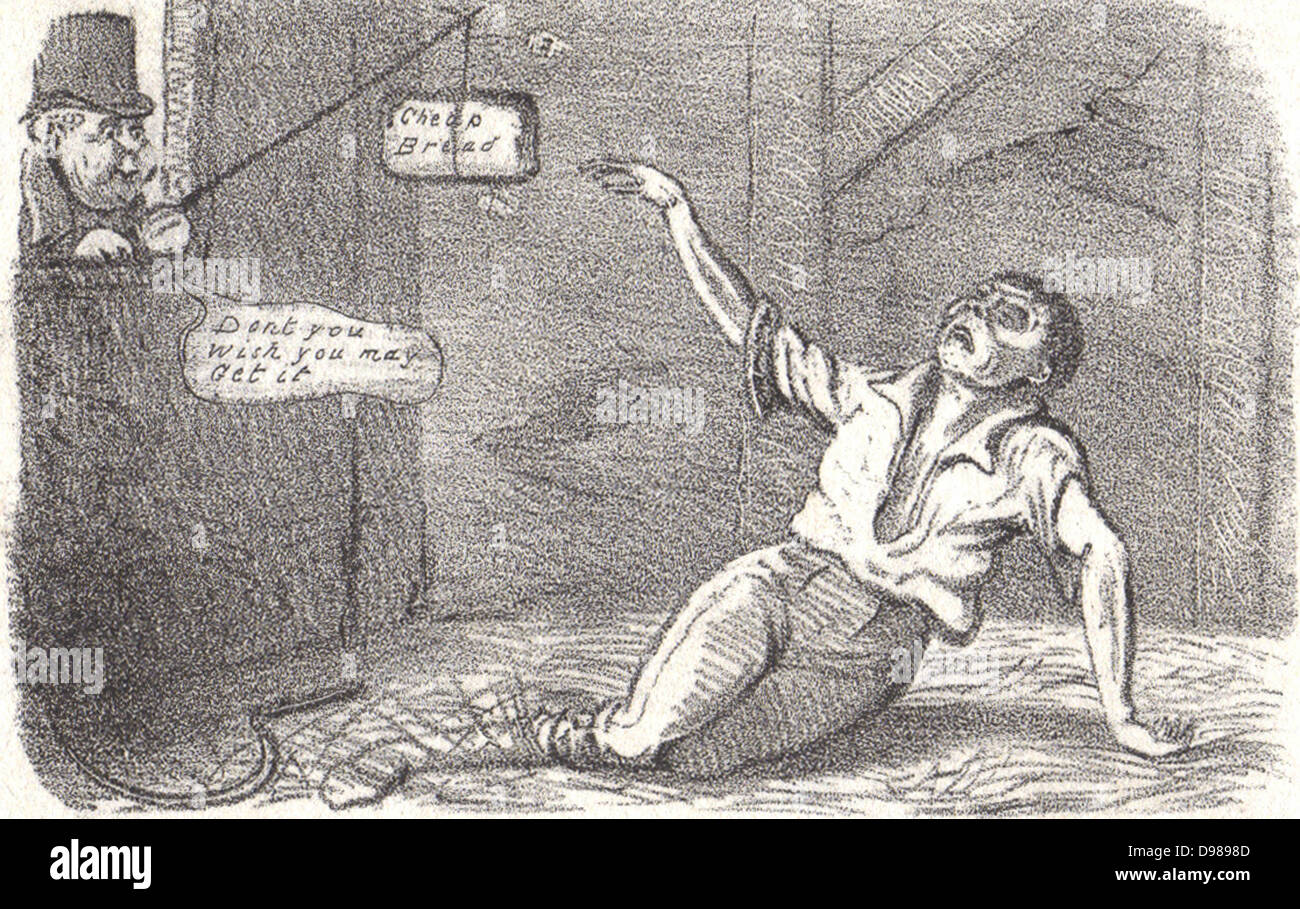The Corn Laws
In 1815 the Corn laws were passed that said no foreign corn could be imported until the home price reached 80 shillings a quarter. This passed with ease as the House of Parliament were dominated by the land owning class in which land was their main source of income. The Landowners and farmers was doing well during the war as the demand was high but in 1813 there was a good harvest which caused a fall in prices then the next year in 1814 there was a poor harvest which caused there to be an import of foreign corn so people did not starve to death. The problem with this is that foreign corn is cheaper than British corn (a bit like how everything know is made in China and the rest of Asia because of cheap labour) and the landowners wanted to protect themselves from other competition. Boyd Hilton suggest that the government was not solely acting for landowner interests. According to him this was not a permanent solution was put in place to stop the worst effects of post-war slump in prices. The corn laws pushed up the price of bread a main part of the diet of the working class. There was a period of civil unrest. Many agricultural labourers were made redundant and many small farmers were still struggling as corn prices stayed high but not the same as the prices during the war and poor harvest continued to cause problems.


Comments
Post a Comment